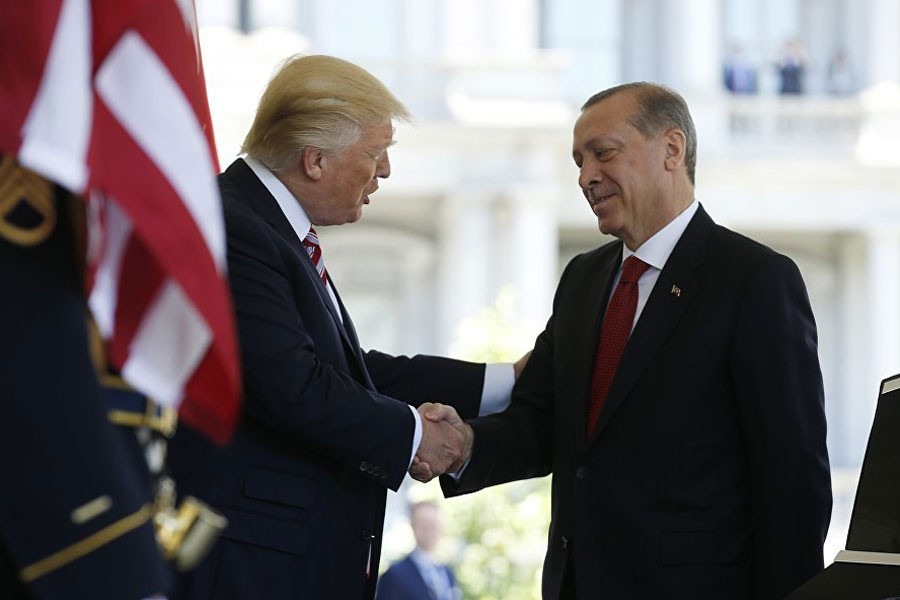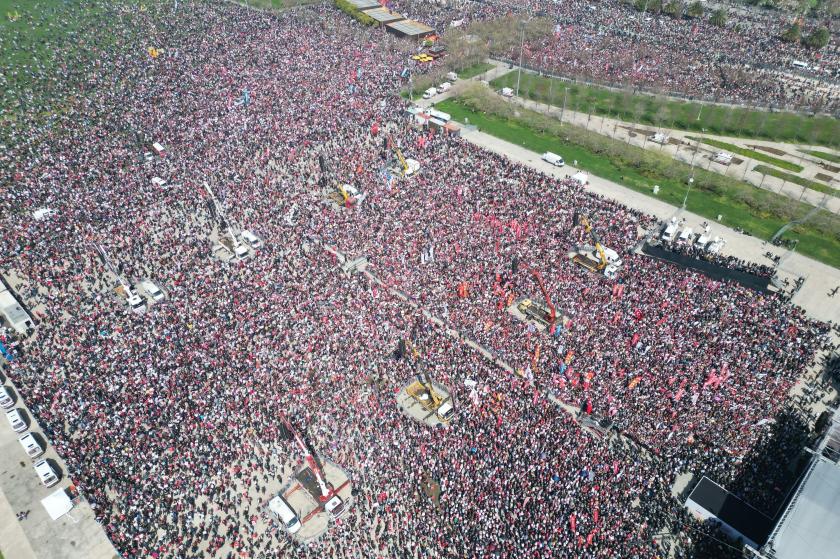Trump's Middle East and Erdoğan's Kurdish question

Yusuf Karadaş
 Fotoğraf: DHA
Fotoğraf: DHA
President Erdoğan was one of the happiest people about Donald Trump's re-election as US president. Erdoğan, who did not receive the attention and closeness he expected from the US despite the steps he took during the Biden era to be more connected to the US-NATO axis, once again trusts Trump's 'sincerity'. Erdoğan, who recently announced that he had a 'sincere' phone call with Trump and invited him to Turkey, said: 'Although there are disagreements from time to time, the model partnership between Turkey and the United States is undeniable,' adding that they are keen to improve their cooperation.
Two points stand out about Erdoğan's expectations for the new Trump era.
The first is to assume the role of mediator in the Russia-Ukraine war, in line with Trump's previous statements to 'end the war'. The Erdoğan government calculates that this role will strengthen Turkey's position in Europe and expand the field of action of the bourgeois reaction it represents.
Secondly, and more importantly, it hopes to open the door of opportunities for expansionist and securityist policies in the region, especially new operations against the Syrian Kurds, based on the expectation that the USA will give Turkey a more advanced role in the Middle East in the Trump era.
Erdoğan had said the day before at Atatürk's commemoration: "We will completely cut the contact between terrorist organisations and our borders. God willing, in the coming period we will complete the missing links of the safe zone we have created along our borders. This expectation is behind Erdoğan's message of a new operation.
So how will the regional (Middle East) policy of Trump and his team be shaped in the new period?
First of all, Trump's team defines China as 'the greatest national security threat'. Indeed, statements in favour of rapprochement with Russia stem from the approach and concern that China must be stopped first. However, prioritising China does not mean that the Middle East has become less important for US imperialism, nor that the policy of targeting Iran has been abandoned. On the contrary, Trump and his team consider it necessary to strengthen their position in the Middle East and weaken Iran for the success of the policy to be implemented against China in the Asia-Pacific region.
Trump pursued this policy in the region during his first term: He accepted the recognition of Jerusalem as the capital of Israel and the annexation of the Golan Heights, implemented the 'Deal of the Century' plan to unite Israel and the cooperating Arab countries around his political axis, withdrew from the P5+1 agreement with Iran on nuclear cooperation and ordered the assassination of Qassem Soleimani, the commander of the Quds Force, the most important figure in the implementation of Iran's regional policy.
The fact that Trump's son-in-law and former adviser Jared Kushner not only supports Israel's aggression and occupation in Gaza, but also advocates the expulsion of Palestinians to the Najaf desert, gives an idea of Trump's possible policy in the new term.
In order to understand the regional role that the Erdoğan government expects the US to play in the new era, it would be instructive to look at the 'Project 2025' report prepared for the 'Heritage Foundation' (a neo-con think tank) by the names of Trump's first term administration. This report argues that the US's regional partners should play a greater role in deterring Iran.
Project 2025, prepared by former Trump administration officials for Trump's new term and praised by Trump in 2022, envisions a greater role for US regional partners in deterring Iran. For this policy to succeed, the report recommends that the United States support the Erdogan government in Turkey instead of the Syrian Kurds. In other words, the report advocates a role for Turkey as a counterbalance to Iran in order to protect US regional interests and Israel, and sees US cooperation with the Syrian Kurds as an obstacle to this policy.
The Erdogan government has shown its willingness to play this role with its 'security' agreements with the Iraqi centre and the Kurdistan Regional Government in coordination with the 'development road'. However, he sees the Kurdish question, which he defines as a 'terror issue', as a threat to the implementation of this policy/role and therefore wants the US to end its cooperation with the Kurds in Syria.
It can be recalled that Trump announced his decision to withdraw US troops from Syria after his phone call with Erdoğan in December 2018, but later backtracked from this decision due to the intervention of the Pentagon and the US State Department. On the other hand, the US did not support the operation carried out by the Erdoğan government against Rojava in October 2019 under the name of the 'Peace Spring', but followed a space-opening stance.
It will not be surprising that Trump's search for a possible compromise with Russia in the Ukraine war will also have an impact on the Syrian arena in the new era - as it was revealed during Trump's first term that secret negotiations were held between the US, Israel and Russia to reconcile with Russia in exchange for limiting Iranian and Hezbollah influence in Syria. Today, Syria's return to the Arab League is also directly linked to the policy of the pro-American Arab regimes in the Gulf to distance Syria from Iranian influence.
In such a situation, the Erdogan government, although it talks about the 'Israeli threat' in words, in reality is calculating how to step in as a strong actor that will balance Iran in the region in the new Trump era and return to the regional leadership role it has been pursuing with neo-Ottoman ambitions. Otherwise, there is no other explanation for Erdoğan's praise of Trump, who has openly declared his support for Israel, and his expectations for the new era. However, Erdoğan's government also expects the US to end its cooperation with the Syrian Kurds in line with the role it will assign itself and open the doors for a new operation on this basis.
At this point, we can already say that the course of US relations with the Autonomous Administration of Northern Syria, which it does not recognise politically and with which it continues to cooperate only militarily (whether this cooperation will continue or not, and in what form it will continue), will be determined by its own regional interests. However, it would not be surprising if the Trump administration, which has in the past used the oil resources of Rojava to unite the Syrian Kurds with the Iraqi Kurdistan Regional Government and the Barzani line, turns to assuaging the concerns of the Erdoğan government through such a policy.
Although Erdoğan has high expectations for his new term, it should not be forgotten that Trump's first term was marked by the Pastor Brunson crisis, the CAATSA sanctions imposed because of the S-400s and his letter in which he called Erdoğan "don't be stupid" and threatened to "collapse the economy". Ultimately, the measure of US imperialism's 'friendship' and 'sincerity' is the extent to which its collaborators serve its interests.
Although Trump talks about 'ending wars', the available data show that US imperialism will continue to support Israeli aggression in the new period and will use this aggression to shape the region on the basis of its own interests and to escalate tensions. The fact that the Erdogan government in Turkey is not only counting on this policy but is also looking for new roles shows us once again that the struggle against US imperialism and Israeli Zionism in the region and the building of a democratic and peaceful future in the country based on the solution of the Kurdish question on the basis of equal rights starts with the struggle against the government in the country.




Follow Evrensel